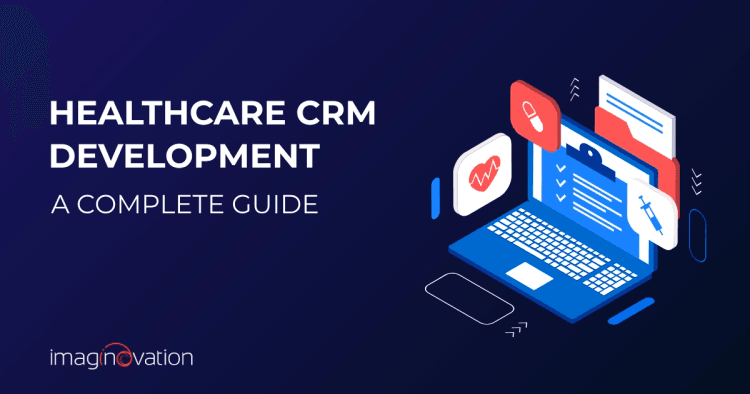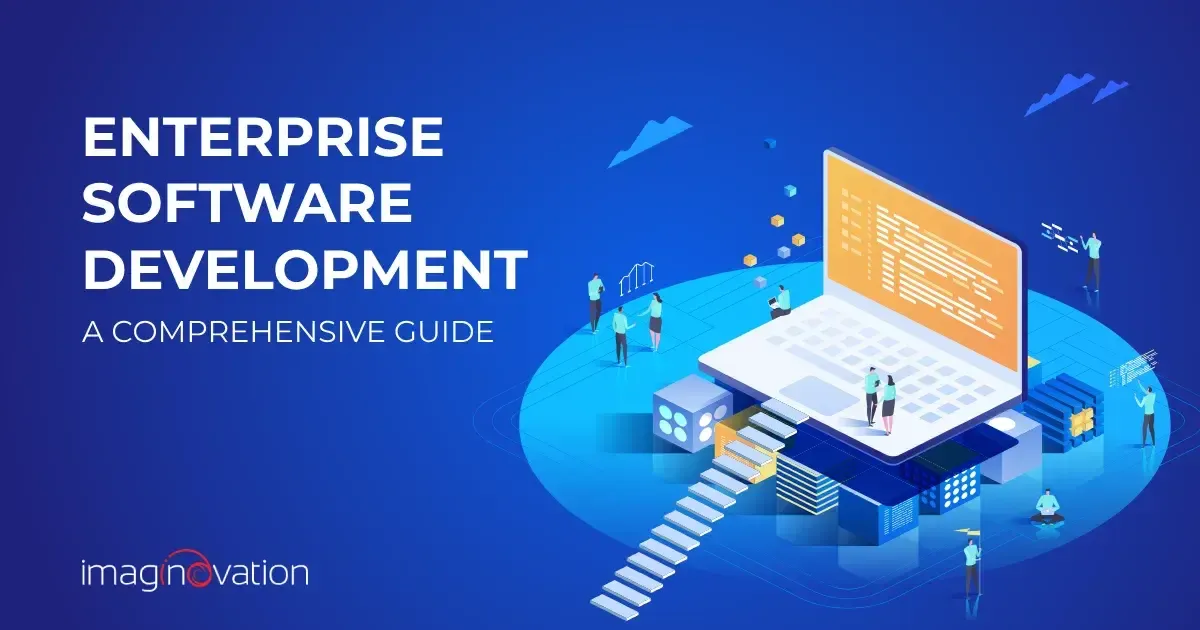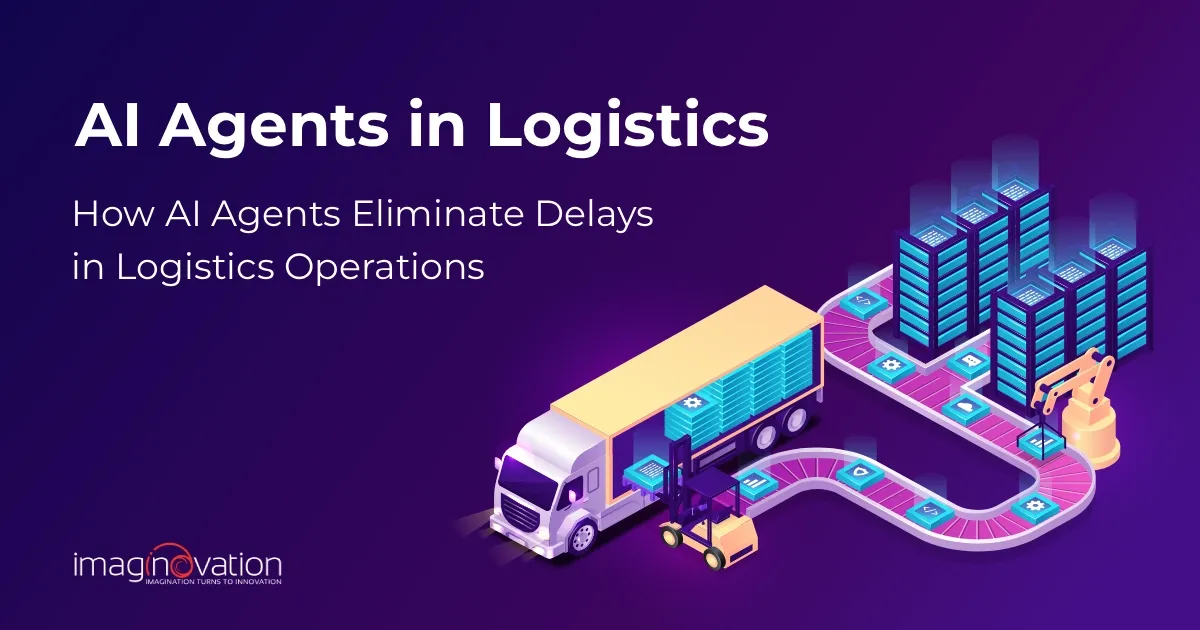To estimate the cost of building a website or an app, use our app cost calculator tool.
Are you considering developing a healthcare CRM for your company?
The healthcare CRM market is booming. In fact, it was valued at $17.9 billion in 2023 and is expected to hit $30.7 billion by 2030, according to Grand View Research. (Source)
That’s a 7.7% compound annual growth rate (CAGR)—a clear sign that healthcare providers are increasingly turning to CRM platforms to improve patient engagement.
It’s natural to wonder how a CRM could benefit your healthcare organization.
By helping you attract new patients and retain existing ones, CRMs provide tools to strengthen relationships and support business growth.
Let’s explore what a healthcare CRM is, its key features, and why it could be a game-changer for your organization.
We’ll also walk you through the process of developing one tailored to your needs.
What is a Healthcare CRM, and Why Does Your Organization Need One?
A healthcare CRM is designed to create top-notch patient experiences while streamlining marketing efforts to attract new ones.
Unlike generic CRMs, healthcare CRMs are tailored for the healthcare industry, equipped to handle sensitive patient data securely, meet stringent health regulations, and enhance patient communication.
One of their standout features is the ability to centralize data from various sources, such as medical records, website interactions, and call centers. This integration creates a unified patient profile, enabling personalized and proactive care.
But a healthcare CRM isn’t just a data repository—it’s a strategic tool. It empowers healthcare organizations to predict needs, streamline operations, and improve patient outcomes.
Here’s how healthcare CRM can help you meet patient's needs:
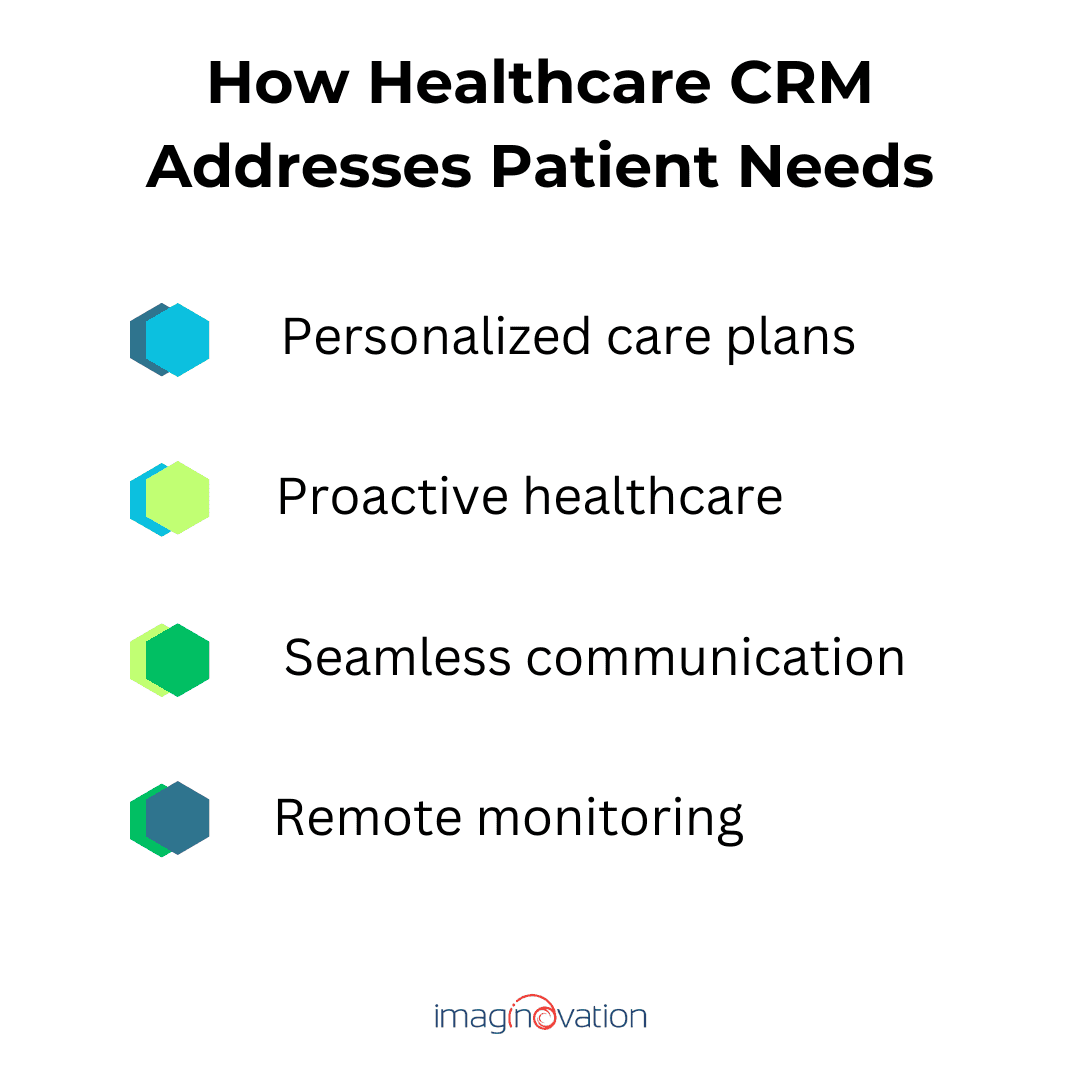
- Personalized care plans: Build tailored patient care plans that integrate each patient’s specific medical history, treatment schedule, and preferences.
- Proactive healthcare: Set automated notifications for upcoming health tests, vaccinations, and follow-up visits. This ensures that patients stay on track with their preventive care plans.
- Seamless communication: Send personalized messages, educational materials, and follow-up instructions to increase patient engagement and bridge the gap between patients and healthcare providers.
- Remote monitoring: Track patient health metrics remotely, allowing for proactive care based on real-time data.
Here’s how your business can benefit from using a healthcare CRM:
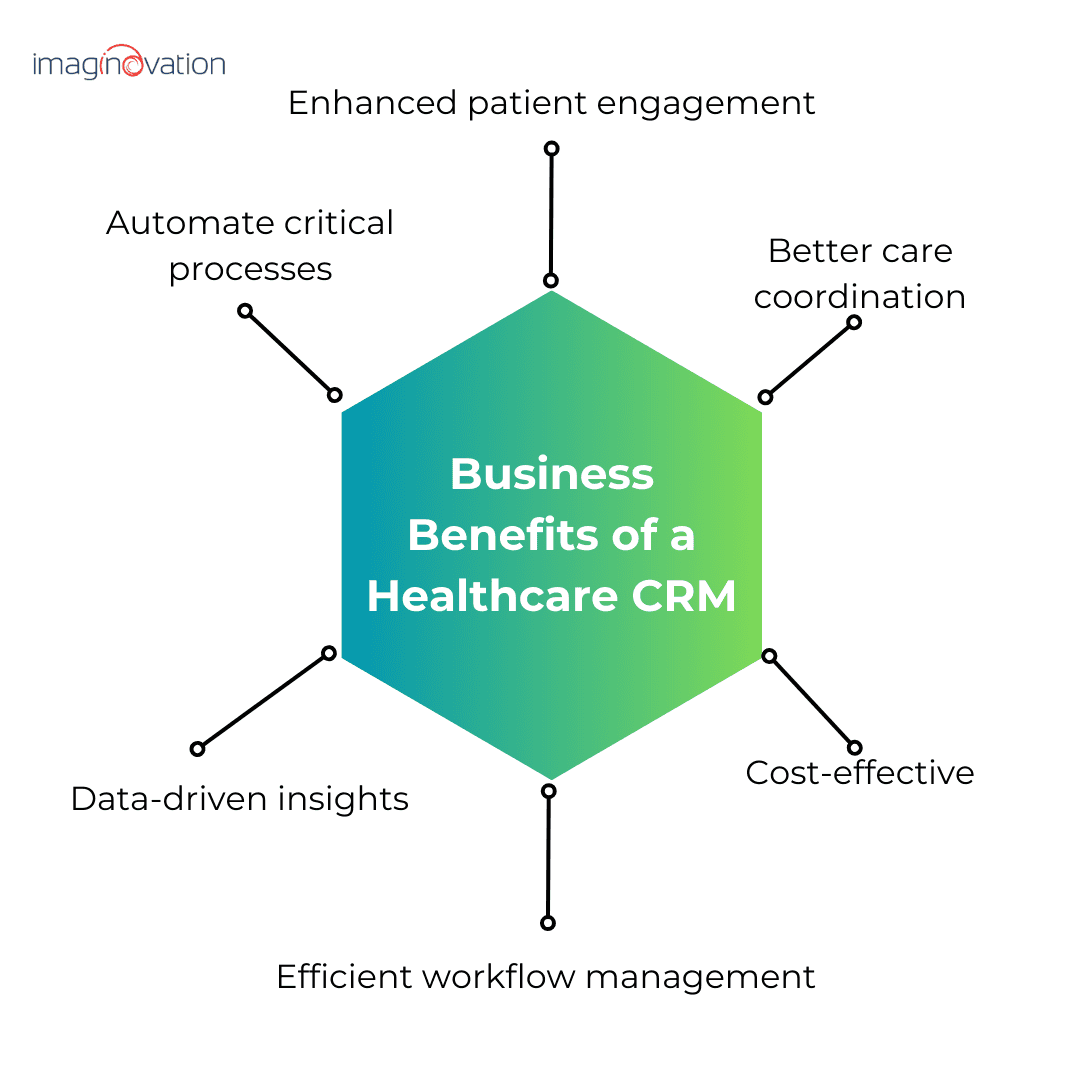
- Enhanced patient engagement & retention: CRM-based personalized communications and care plans improve patient satisfaction and engagement.
- Better care coordination: Centralized data and communication channels support seamless collaboration among multi-disciplinary teams, improving care outcomes.
- Cost-effective: With fewer manual errors and more automated tasks, healthcare providers save money. Also, operational efficiency cuts wastage, helping carecenters financially.
- Efficient workflow management: Automated scheduling, follow-up, and administrative tasks free up staff’s time for patient care.
- Automate critical processes about patient expectations: Automate the collection of patient feedback related to service quality, medical facilities, and doctors and improve your business based on it. This can help you win back dissatisfied patients.
- Get data-driven insights: Generate valuable insights into patient behavior and operational performance to ensure data-driven decisions in your organization.
Also Read: Getting Started with Custom Healthcare Software Development
Key Features of a Robust Healthcare CRM
Here’s a list of all the core features you must integrate into your healthcare CRM solution:
1. Centralized Patient Data Management
Centralizing patient data simplifies administrative processes, such as registering new patients and retrieving records, while ensuring smooth data access for multi-disciplinary teams during appointments and consultations.
Your healthcare CRM should feature a secure, centralized database that consolidates essential patient information, including:
- Medical history
- Prescribed treatments
- Appointments
- Lab reports
- Insurance details
- Contact information
To maximize efficiency, the CRM must integrate with electronic medical records (EMRs) and pull necessary data entered by patients via medical apps.
Real-time updates are crucial, ensuring that every new piece of information is immediately accessible. This enables medical staff to build comprehensive patient profiles, minimizing diagnostic or prescription errors.
Additionally, it supports marketing teams by improving communication and engagement with patients, resulting in better overall service and care delivery.
2. Appointment Scheduling
Efficient appointment scheduling is a must-have feature in any healthcare CRM. It simplifies booking, rescheduling, and managing patient appointments, helping to reduce wait times and improve the overall patient experience.
Though it sounds straightforward, appointment scheduling can be complex, even with a well-designed healthcare UI/UX. A robust scheduling module should:
- Dynamically update through the interface to reflect real-time practitioner availability.
- Sync booking information seamlessly with individual and shared calendars.
- Allow medical staff to view schedules, adjust time slots, and easily manage calendars.
Any changes to appointments should instantly be updated across all platforms to avoid conflicts or miscommunications, ensuring a smooth and efficient process for both patients and providers.
3. Communications Management
A healthcare CRM must facilitate direct communication between the organization and its patients or prospects, ensuring seamless engagement at every stage.
Key capabilities should include:
- Messaging and Notifications: Real-time communication for reminders, updates, and notifications about appointments or medical alerts.
- Automated Email Campaigns: Streamlined email distribution for marketing efforts, personalized health tips, and service updates.
- 24/7 Customer Support: Round-the-clock support to address patient inquiries and provide assistance promptly.
Patients should also have the ability to:
- View timetables and doctor availability.
- Book and manage appointments.
- Interact directly with healthcare staff through messaging features.
The CRM should include call automation for phone inquiries to route patients to the appropriate medical department. Advanced systems can incorporate conversational AI to gather details about the patient’s inquiry and transfer them to the relevant support personnel, ensuring efficient and personalized assistance.
4. Marketing Management
A healthcare CRM enables providers to engage with patients through highly targeted and personalized marketing efforts, ensuring better outreach and connection.
Key features include:
- Personalized Messaging: Send appointment reminders, health tips, or follow-up care instructions via email and SMS, particularly for patients managing chronic conditions.
- Data Segmentation: Use demographic and medical history data to create tailored campaigns promoting specific hospital services.
- Automated Campaigns: Schedule and manage marketing campaigns automatically, freeing up staff time while maintaining consistent communication.
- Performance Metrics: Analyze the success of campaigns using metrics like engagement rates, patient response, and ROI to refine strategies.
To maximize impact, the CRM should also offer:
- Search Engine Optimization (SEO): Tools to improve your organization’s online visibility.
- Social Media Integration: Seamless campaign management across platforms to connect with a broader audience.
- Web Marketing Tools: Features like landing page creation and conversion tracking to drive patient engagement effectively.
5. Reporting & Analytics
A healthcare CRM is only as valuable as its ability to analyze data and generate actionable insights. Detailed reporting and analytics are essential for helping healthcare providers make informed decisions and improve operational efficiency.
Key capabilities include:
- Custom Reports: Generate tailored reports to address specific needs, such as tracking patient treatment adherence or managing medical inventory and devices.
- Open Log Reports: Simplify the estimation of patient complaint severity and assist in prioritizing critical issues.
- Data Visualization: Present data through intuitive graphs, tables, and figures to make complex insights more digestible.
These reports should provide real-time insights into:
- Medical team performance and patient care outcomes.
- Customer support efficiency and responsiveness.
- The financial success of marketing campaigns.
With these tools, healthcare providers can pinpoint areas for improvement, streamline operations, and enhance productivity and profitability.
6. Integration and Interoperability
Seamless integration with existing healthcare systems is a cornerstone of an effective CRM. This ensures interoperability across critical platforms, such as:
- Electronic Health Records (EHRs): Synchronize patient data for comprehensive care.
- Diagnostic Tools: Streamline the flow of test results and reports.
- E-Prescribing Platforms: Improve prescription accuracy and efficiency.
- Billing Systems: Simplify financial transactions and patient payment tracking.
- Enterprise Resource Planning (ERP) Systems: Enhance resource allocation and administrative processes.
Such interoperability minimizes errors, enhances coordination among healthcare teams, and improves data collection efficiency. Ultimately, it supports a more cohesive, streamlined approach to patient care and operational management.
Steps to Develop a Healthcare CRM
Healthcare CRM development is a meticulous journey with detailed sequential stages. It requires thorough planning, thoughtful design, and consistent effort from the developer to align with healthcare organizations' requirements.
While the steps to create a custom CRM solution may vary for individual healthcare businesses, here’s an outline of the essential process to follow:
Step 1 - Define requirements.
To begin with, define your project requirements.
Start in-house. Engage key stakeholders, healthcare professionals, administrators, and your organization's IT personnel.
Gather valuable insights into their daily workflows, challenges, and the desired features for the new CRM. Learn what their expectations are from the new software.
Define requirements at the very beginning, as it lays a solid foundation for the next step.
Step 2 - Partner with a healthcare digital solution expert.
The next step is to engage a skilled software development team such as Imaginovation to help build your CRM. Working with experts speeds up time-to-market and addresses potential issues early, thus avoiding extensive rework later.
These are some of the things you must consider when selecting a partner:
- Their previous experience in healthcare solution development.
- The technology stack they use.
- Team size, expertise, and composition (programmers, database specialists, and UX/UI experts).
- Their knowledge of different healthcare regulations.
- References and client testimonials.
- Project methodology and tools used.
Tip: Do not limit your search for a partner geographically. Outsourcing to an offshore software team can offer a wider talent pool and cost-effective resources.
Step 3 - Perform research.
Check current healthcare CRMs and their good and not-so-good points. Research market trends and emerging technologies thoroughly.
Discuss the project’s goals and objectives with your team to gather diverse perspectives.
A collaborative approach during the discovery stage is essential; it highlights areas for improvement to avoid unnecessary complexity in your solution.
Step 4 - Build a prototype.
This is the first behind-the-scene step that the developers perform. Once CRM developers have clear project requirements, they can move forward with creating a prototype.
Prototyping allows for visualizing the healthcare CRM and mapping the customer journey from start to finish, identifying pitfalls and areas for improvement.
It also enables early team feedback and helps eliminate costly mistakes.
Often, you may find that your initial ideas need refining at this stage, prompting you to rework your CRM concept.
Step 5 - Design software architecture.
This step needs collaboration between the designing team and the software
engineering team. It serves as the blueprint for the entire development process, ensuring healthcare CRM's scalability, security, and efficiency.
When building the CRM architecture, developers focus closely on modules, data models, and planned integrations.
The platform's effectiveness in meeting a healthcare organization’s evolving needs relies heavily on the strength of its architectural design.
Step 6 - Develop software.
With the software architecture prepared, the development process begins now.
In this step, developers write the software code for your healthcare CRM, design user interfaces, and integrate any necessary systems and technologies for medical staff.
The developers build features based on the design plan and ensure the CRM for healthcare can securely and efficiently handle healthcare data in real-time.
Step 7 - Test, test & test.
This step ensures your CRM is bug-free and
stable. Test the system to check if it meets all your requirements. Conduct integration testing to validate that it can work with all the integrated APIs and conduct functional and performance testing.
Remember, testing is an ongoing process; each time updates or new features are introduced, test your CRM to ensure it doesn't impact its functionality.
Step 8 - Deployment.
You reach the deployment stage once the testing is complete and get the go-ahead for its release. This is the final stage of healthcare CRM software development.
Once the software is ready, the IT team deploys/installs the CRM on the servers and configures the settings.
After deployment, continuous, reliable support from the development team will be necessary to address initial challenges and implement further enhancements.
Partner with Imaginovation for Your Healthcare CRM Success
In today’s fast-paced medical field, Healthcare CRM software has become essential.
It enables hospitals and healthcare centers to adopt a patient-centric approach, helping practitioners make data-driven decisions and improving care delivery.
If you’re considering developing a healthcare CRM solution, Imaginovation can be your choice.
We will help you accelerate your digital transformation, offering advanced, highly secure, HIPAA-compliant solutions.
With an Imaginovation-built healthcare CRM, you can enhance patient management, streamline hospital administration, anticipate patient needs, and provide memorable, personalized care.
Our expertise in advanced technologies like AI/ML and cloud computing and extensive experience in collaborative, tailored healthcare solutions further sets us apart.
Contact us at Imaginovation for your healthcare CRM needs.





